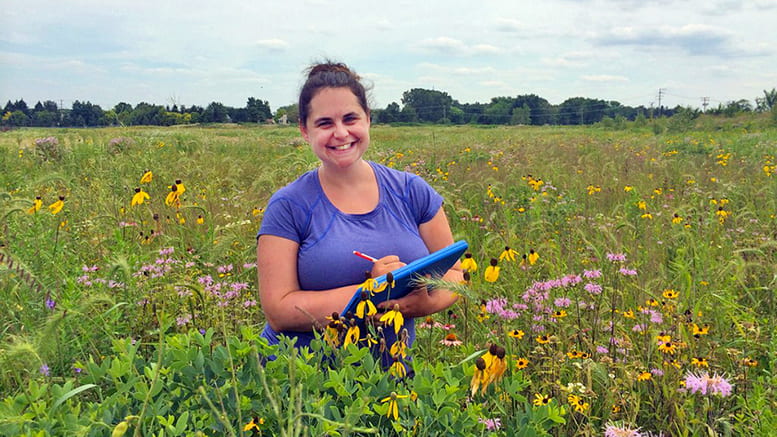Rebecca Barak, adjunct assistant professor in the Program in Plant Biology and Conservation and an assistant conservation scientist and seed bank curator, is currently researching alternative methods for maintaining green lawns. Lawn maintenance is in high demand across the country but often comes at a steep environmental price. Barak and her team of scientists across the country “plant and study lawn alternative plots in public green spaces, explore options for establishing and maintaining these plantings, and share information to encourage planting lawn alternatives where appropriate.”
Because of her work in this field, Barak recently received the Biota Award for biodiversity research along with four other scientists. The institutions awarded will also receive $300,000 over three years to aid their work in solving biodiversity challenges.
“Urban greenspaces can be done differently,” said Barak. “The concept of lawn alternatives is out there, but there isn’t a lot of data to support why they can be better and what roles they fill. Our first goal is to determine what the environmental benefits to pollinators, plants, water conservation, and climate change are. Then, what is the best way to establish and maintain these lawns? This will help individuals and land managers, such as the Chicago Park District, put lawn alternatives into practice quickly.”
“Lawns are not all bad, but we want to offer a menu of options to people interested in the environmental benefits of lawn alternatives. These types of lawns are gaining in popularity, and there are ways to start small. Communicating the options and benefits to the public is an important part of our work.”
Learn more in Northwestern Now’s article, “We can make lawn grass greener, says plant biologist.”

